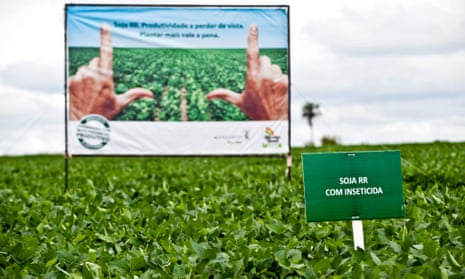The German drugs and chemicals group Bayer has pounced on Monsanto, the world’s biggest seed company, with an unsolicited takeover offer likely to be worth more than $40bn (£27bn).
Bayer, which invented aspirin in the 19th century, said executives from both companies had met to “privately discuss a negotiated acquisition of Monsanto Company” to create a “leading integrated agriculture business”.
Combining their operations would create a giant business making drugs such as Yasmin birth control pills, pesticides and seeds for genetically modified crops.
Monsanto confirmed an unsolicited takeover proposal from Bayer and said the company’s board was reviewing the offer with its financial and legal advisers.
Monsanto, based in St Louis, Missouri, has a market value of $42bn. Last year, the company failed in an attempt to buy Swiss pesticides company Syngenta for $47bn; it has since itself become a takeover target, with global crop prices falling. German chemicals company BASF is also known to be interested.
Prof John Colley of Warwick Business School said: “Monsanto certainly do not want to be bought by a European business. However, shareholders always have their price. No doubt Monsanto will reject the bid, but it will need to convince its shareholders that it has seriously considered the offer. A higher bid is likely.
“Demand is poor for agribusiness products currently due to low commodity prices. Overcapacity has led to poor performance and lower share prices, in turn providing opportunities for mergers.”
Syngenta agreed to be bought by the state-backed China National Chemical Corporation in February. The $43bn deal, the largest foreign acquisition by a Chinese company, is being scrutinised by US regulators amid concerns about the security of the US food supply.
A deal between Bayer and Monsanto could also raise antitrust fears in the US, because there is overlap between their seeds businesses, particularly soybeans, cotton and canola.
Monsanto is thought to have approached Bayer earlier this year about buying or forming a joint venture for its crop science division.
Phillip Tunney, the head of the UK chemical sector group at law firm Eversheds, said: “This is just the latest development in a series of consolidations in the agrichemicals sector, which has seen some pretty eyewatering numbers involved. It will be interesting to see how any combined company would deal with antitrust issues, which are likely to be significant, and whether Bayer would undertake any divestments to help fund the acquisition.”

Comments (…)
Sign in or create your Guardian account to join the discussion